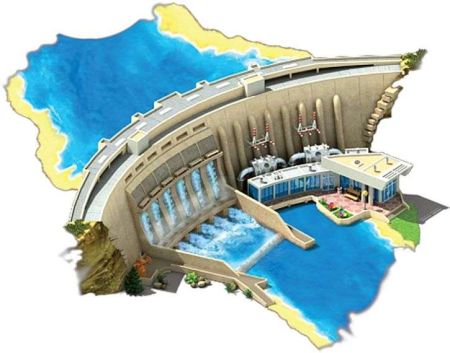 When the USA was frantically trying to come out of perhaps the worst economic recession in modern times, the Eurozone reeled under even more serious cycle of economic meltdown. Angry verbal exchanges between British Prime Minister David Cameron and French President Nicholas Sarkozy in Brussels meeting on 23rd October and apparently crestfallen Sarkozy coming out of a meeting with German Chancellor Angela Merkel a couple of days earlier are surmiseable indications of the fact that the days of economic certainties in the world are still beyond horizon. The reportedly emerging consensus among the Eurozone leaders might find some solace for now. In fact, they have no alternative to evolving such consensus, but the days of worries of world economy wouldn't be over just by such isolated moves of bail-outs or write-offs unless the very cause(s) of these problems are addressed at the root. The most repeated statement of the present day economists and economic analysts is: Even if the USA and the Eurozone specifically Greece, Italy, Portugal, Ireland or Iceland -- came out from the current mess by some means, the world will not be the same again. Then, how would the new world look like? Nobody has a definitive answer. But, there is no alternative to finding out not only a convincing answer to this question but a workable framework to save the world from such too frequent and highly pervasive economic crises. Both, such frameworks and answers, can be devised by reviewing the past and taking unconventional strategies that suit to the present-day realities.
When the USA was frantically trying to come out of perhaps the worst economic recession in modern times, the Eurozone reeled under even more serious cycle of economic meltdown. Angry verbal exchanges between British Prime Minister David Cameron and French President Nicholas Sarkozy in Brussels meeting on 23rd October and apparently crestfallen Sarkozy coming out of a meeting with German Chancellor Angela Merkel a couple of days earlier are surmiseable indications of the fact that the days of economic certainties in the world are still beyond horizon. The reportedly emerging consensus among the Eurozone leaders might find some solace for now. In fact, they have no alternative to evolving such consensus, but the days of worries of world economy wouldn't be over just by such isolated moves of bail-outs or write-offs unless the very cause(s) of these problems are addressed at the root. The most repeated statement of the present day economists and economic analysts is: Even if the USA and the Eurozone specifically Greece, Italy, Portugal, Ireland or Iceland -- came out from the current mess by some means, the world will not be the same again. Then, how would the new world look like? Nobody has a definitive answer. But, there is no alternative to finding out not only a convincing answer to this question but a workable framework to save the world from such too frequent and highly pervasive economic crises. Both, such frameworks and answers, can be devised by reviewing the past and taking unconventional strategies that suit to the present-day realities.
1. Oversight Failures : When the subprime crisis was at its height in the US in 2008, Eurozone leaders were proudly boasting the robustness of their conservative supervisory regime of the financial system and were not subscribing the idea that their financial systems were not immune to similar- inbred if not contagious- crises.
The series of these crises have now exposed the fact the exiting supervisory and regulatory framework worldover has become virtually dysfunctional and a new one encompassing the contemporary, and if possible future, trends is not yet in place. Even worst, no meaningful homework has begun to that end, so far.
The movement of funds aided by mainly three distinct features-- the exponential growth in information technology, wider transport connectivity and high movement of people and new tools of trade in the money market like derivatives future-- have far outpaced the efficiency, jurisdiction and reform of both global and national financial systems oversight regimes. International flow of funds through legal channels, i.e. more or less detectable by any form of the regulatory radar, is less than 4 to 5 percent of the total estimated global transfers. On the legal side of the transfers, estimated value of world merchandise exports in 2010 was US $13.36 trillion and world commercial services exports in the same period was $3.64 trillion (Source WTO secretariat website and calculated on projected 10% rise in 2010 from 2009 actuals of world merchandise exports equivalent to $12.15 trillion and world commercial services exports $3.31 trillion).
Similarly, according to an estimate by the World Bank, officially-recorded remittance flows in 2010 was about US$440 billion worldwide. And, crossborder investments in capital markets and real estate combined was to the tune of $330 billion. With all these transfers put together, even in exaggerated terms, the recorded total transfers of funds across the globe would hardly cross the $ 20 trillion mark. On the contrary, according to the Bank for International Settlements (BIS), amount of derivatives transactions stood at $601 trillion in December 2010, up from $583 trillion six months earlier. It was at the record level of $684 trillion in June 2008. Interest rate contracts form more than 75 percent of the derivatives futures transactions. (As reported in The Economist, May 31, 2011) The figures presented by the Daily Finance, a subsidiary portal of AOL, is even more appalling.
It says, One of the biggest risks to the world's financial health is the $1.2 quadrillion (one quadrillion is 1,000 billion) derivatives market. It's complex, it's unregulated, and it ought to be of concern to world leaders that its notional value is 20 times the size of the world economy Apart from these monetary-side regulatory gaps, fiscal regulation is also facing new challenges as the national boundaries are gradually becoming irrelevant partly by the sweep of globalization and partly made so by design, particularly in case of Eurozone, with the introduction of common currency, the Euro.
With the introduction of the common currency, the national-level supervisory/regulatory authorities have become redundant and the national accounts failed to present the true picture of the economy as many crossborder transactions take place unrecorded. The window of currency conversion that used serve also as the basis of record of cash flows across the border is automatically out of practice. The forceful homogenization of the currencies of weaker and stronger economies has prompted unhindered and unregulated capital flights from weaker to stronger economies, breeding even graver crisis situations in weaker nations. Greece is the latest striking example. 
Such capital flight is but natural phenomena, because weaker economy also meant less rate of return on investment, lesser degree of security and higher degree of unpredictability. And, common currency has facilitated it in a great deal.
2. The Political-Economy Issue: With the crisis aggravated more on every passing day, and resolution of it nowhere in sight, a number of ecopolitical issues have also come to fore. The worldwide fever of Capture Wall Street has created a new debate on possible collapse of capitalism. The advocates of egalitarian welfare state seem happy that the old good days of state-sponsored social safety model of economy would return soon. In the virtual mayhem, the virtues of both democracy and capitalism are pushed behind the dark shadow, a true concern for the future of the world economy and polity. In name of addressing the crisis, the electorates are kept completely aloof in taking the economic decisions that affect their lives the most. Their elected representatives are equally helpless as the common man on street, like in the case of Greece again, or their representatives like in the US take the decisions on the issues never mentioned in their election manifestoes, thus acting on democratically unmandated domain.
These factors in due course are likely to raise more excruciating questions on the very rationale of election and their leaders authority to rule. This would certainly take way some beauties from the democracy. Another important question here is: has capitalism really failed? Or, are mere consumerism and irrational greed at the peril? The differentiation is not easy. But the fact is, it is not the capitalism that has failed but all the problems, perhaps without exception, are borne out of sheer anti-capitalistic and antidemocratic moves of the economies and their leaders at the helm.
One of the greatest beauties of capitalism is the Economic Darwinism. The state must let the companies of whatever size that are already or become unable to compete in the market, fail. But, the problems multiplied to take the world at present situation when powerful economies set wrong precedent by bailing out ailing banks and companies at the expense of the tax-payers money. And, in the process, the decision makers did it without taking such important issues to the public through polls or referendum, which compromised the very tenets of the democracy.
The ongoing global economic crisis, however, should be able to ignite a new debate on necessity of democratic capitalism as new future eco-political model. This new philosophy must not only be able to force the governments to act according to the principles of democracy and/or capitalism in isolation, but should establish it as a united theory where these two are treated as inseparable elements in future ecopolitical governance.
3. The Future: The hypothesis of democratic capitalism is certainly useful to resolve the present crisis. Even more, this paradigm-shift would prove more appropriate as the shifting of economic might from West to East, from democratic to authoritarian country. Observing at the difficulty in resolving current crisis even in the highly transparent economies like the US and Europe, one can easily think of gravity of situation when similar problem arise in secretive but the second largest economic powerhouse like China. The simultaneous emphasis on democracy as that only ensures transparency and, respect to the ideals of capitalism that promotes free competition in any odd situation, can only in unison make the future world safer to live and do the business in business-like fashion.























